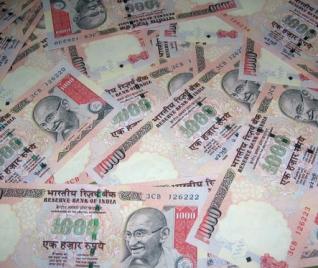
India government has imposed Rs 323.56 crore penalty on telecom operators in nine months of the current financial year for violating rules pertaining to verification of subscribers.
Indian telecoms made payment of Rs 62.15 crore during the first nine months, said telecom minister Ravi Shankar Prasad on Wednesday.
Telecom network operators such as Aircel, Bharti Airtel, Vodafone, BSNL, Idea Cellular and Telenor are facing the penalty.
The Government imposed a penalty of Rs 73.76 crore on BSNL, Rs 50.25 crore on Vodafone, Rs 43.73 crore on Tata Docomo, Rs 41.76 crore on Idea Cellular, Rs 40.20 crore on Reliance Communications, Rs 38.70 crore on Bharti Airtel and Rs 1.44 crore on Telenor, among others.
“Telecom Enforcement Resources and Monitoring (TERM) Cells carry out sample verification of CAF and related documents of the acquired customers, by all telecom service providers (TSPs), which bring out non-compliant cases where DoT guidelines pertaining to verification of subscribers were violated by TSPs,” said Ravi Shankar Prasad.
The minister said for non-compliant cases, TERM Cells impose applicable financial penalties on erring TSPs as per the guidelines issued from time to time.
Regarding a query on quality of service, Ravi Shankar Prasad said that telecom regulator TRAI has been monitoring the performance of service providers.
“Wherever the quality of service benchmarks are not met, TRAI has also been imposing financial disincentives on service providers for failure to comply with the benchmarks, in accordance with the provisions of the regulations,” Ravi Shankar Prasad said.
This apart, the Government has imposed Rs 10.70 crore penalties on defaulting service providers for not meeting the QoS benchmarks.
Total import of electronics goods grew over 15 percent to Rs 225,600 crore in 2014-15 over the previous fiscal.
Ravi Shankar Prasad said the India has taken steps to promote domestic research and development of electronic products in the country.
The government has set up an electronics development fund as a Fund of Funds to participate in professionally-managed ’Daughter Funds’, which in turn will provide risk capital to companies in developing new technologies in electronics, nano-electronics and IT.
The India government has launched National Centre for Flexible Electronics at IIT Kanpur, the National Centre for Excellence in Technology for Internal Security at IIT Bombay and the Centre for Excellence for Internet of Things at Nasscom, Bengaluru to promote Electronics System Design and Manufacturing in the country and develop national capability.





